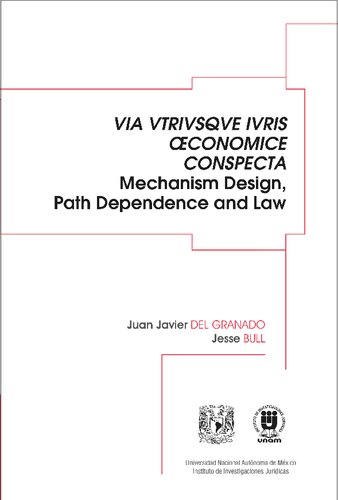(Ebook) Via utriusque iuris œconomice conspecta, Mechanism Design, Path Dependence and Law by Juan Javier del Granado and Jesse Bull ISBN 9786073048637, 6073048637
This short law and economics work offers a sustained focus on two disparate foundations for Western European legal arrangements: one grounded in Roman law and the other based on the common law. Instead of comparing, as modern business scholars have done, the efficiency of the common law with the present-day civil law, with its own inefficiencies, the authors seek to outline through mechanism design theory what exactly are the origins and development of the present-day common law system in the United States, whether it is exceptional, and how we could further modernize it. The tradition of civil law enters the discussion insofar as sorne aspects of classical Roman law, as a paradigmatic private-law system, offer up alternate possibilities in the design of private-law institutions. Next, the authors turn to what mechanism design theory might have to say about the design of public-law institutions. Under the general assumptions of democratic theory, legislatures have positive legitimacy to make law because of the power of the people who elected them. Throughout the world, however, unelected judges also make law through the exercise of judicial review. What, if anything, gives such judges positive legitimacy to make law? The answer the authors provide may be surprising. They demonstrate that judges' positive legitimacy is based on the power of people. The court system allows a single individual to act collectively with other similarly situated individuals spread out through time. Courts are insulated from the political process because unelected judges are beholden to a temporally-disconnected group, rather than to contemporaneous constituencies.
*Free conversion of into popular formats such as PDF, DOCX, DOC, AZW, EPUB, and MOBI after payment.


